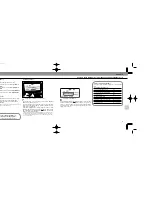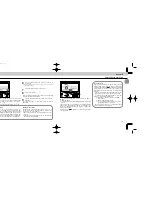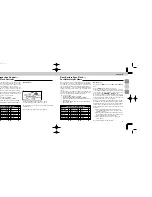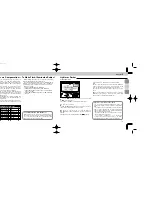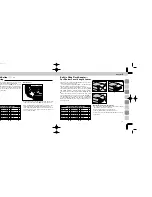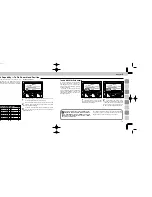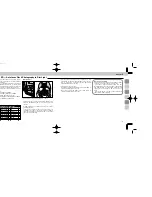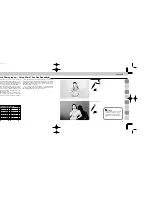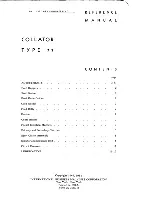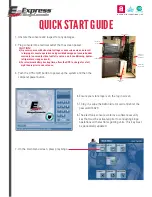
Chapter
4
S D OFF
SB-26
Flash-Shooting Applications
96
Chapter
3
Repeating Flash
G
Mode
9
If necessary, press
˛
or
Ç
button to reset the
indicator bar
/
so it points at the measurement
scale that matches or nearly equals the actual flash-to-sub-
ject distance (can be read this from the lens barrel).
Manipulating the indication bar causes aperture value in the
LCD panel to change.
10
Reset aperture value on the camera.
Use an aperture one or two stops smaller than the LCD
panel indicates. This will prevent overexposure for overlap-
ping images (“minus” exposure compensation).*
* Subject will be correctly exposed with the very first flash, but successive over-
lapping images (form the second flash on) will not be properly exposed, unless
you perform minus exposure compensation as indicated in steps 9 and 10. We
recommend you take a few additional shots at different apertures (exposure
bracketing).
Background brightness and subject overlap
Use as dark a background material as possible (e.g.,
black curtain or cloth). If the overlapping exposed
images are too weak or too strong, try repositioning
subject at the location suggested by the indicator bar
/
(or adjust indicator bar).
Conditions vary for each situation — try experiment-
ing.
11
Look into camera viewfinder, compose and lightly
press the shutter release button to confirm that sub-
ject is in focus.
Check that ready-light is on in the camera’s viewfinder
g
or
on the SB-26
Â
.
12
Fully depress shutter release button to fire flash.
SB-26 (E) 03.1.14 7:16 PM Page 96




